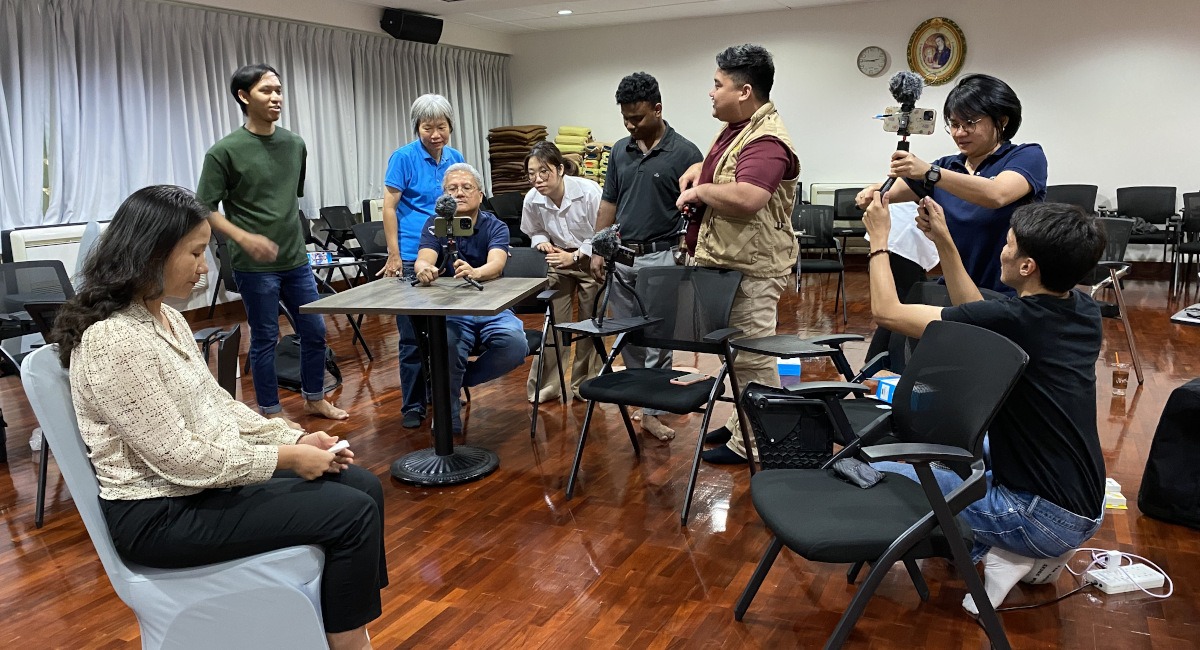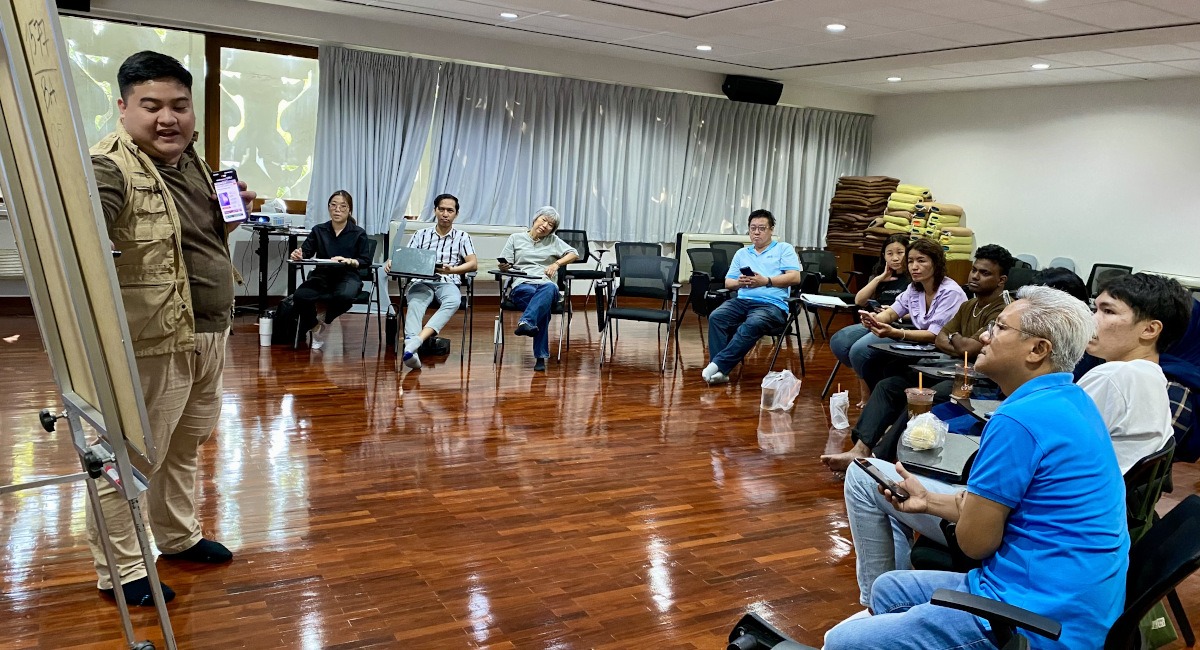
Combining interactive lectures and hands-on practice, the workshop was facilitated by Isaiah Crisanto, a multimedia producer with a special interest in film and design. It was designed to be informative and practical for the participants’ work on the ground.
The workshop began with the basics: understanding the capacity and capabilities of their mobile phones. Participants were provided with essential equipment, including a small tripod, a professional microphone, and earphones. With these inexpensive and easy-to-find tools, they learned that they can create content with better production values, emphasising the importance of properly capturing image and sound.
Participants practiced framing scenes and recording audio with a simple microphone setup, using mobile phone recordings as backup. The peaceful environs of Xavier Hall in Bangkok, the centre of the Jesuits in Thailand, served as an ideal location for testing their new gear and skills. Practice shoots were filled with laughter and sometimes frustration. “It’s harder than I thought it would be!” someone said.

As a final project, the participants were divided into small groups and tasked with creating short videos on specific topics. After brainstorming ideas, they learned the careful process of pre-production, the planning stage that goes before the filming. Each group had about four hours to shoot enough footage for a 60-second video. Once the footage was in the can, participants then learned about editing and other matters of post-production. Using user-friendly editing software, they produced rough cuts of their videos.
By the end of the workshop, each group had a video to present. One group tackled the plight of young people in Myanmar, another portrayed a day in the life of a JRS worker, and a third explored the challenges of running a food stall in Bangkok. A final session with feedback and comments ended the workshop, leaving participants with a lot of good energy surrounding their projects. They realised that good stories are waiting to be told and that with some skills, creativity, basic equipment, and a lot of inspiration, they can bring these stories to life.






